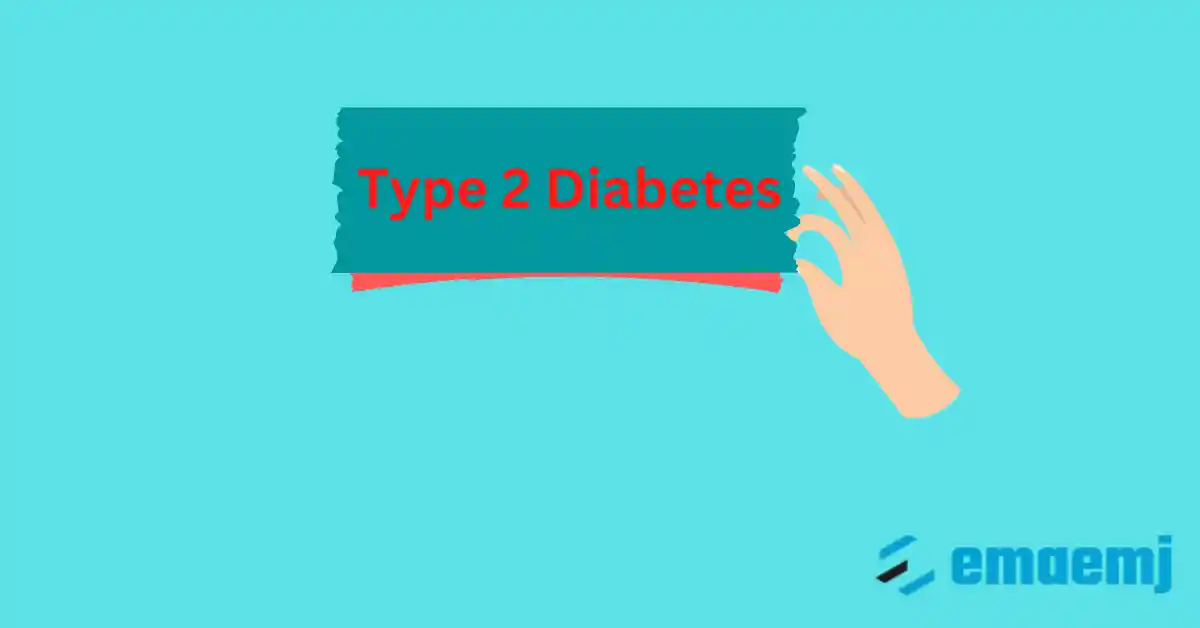Type 2 diabetes is one of the most common and severe medical conditions that affect millions of people around the world today.
It is a progressively worsening condition characterized by high levels of glucose in the blood, which can cause serious health issues like cardiovascular disease, strokes, kidney, and nerve damage if left untreated.
In this blog post, we will detail what type 2 diabetes is, its causes, symptoms, and treatment options available for those living with it.
We will also answer some frequently asked questions about type 2 diabetes, including what sets it apart from type 1 diabetes and how serious it is.
Lastly, we will discuss ways to manage type 2 diabetes medically and lifestyle so you can get back to a healthier and happier life!
Introduction
It is critical to understand type 2 diabetes and its implications for the individual and their family.
This blog post aims to provide a comprehensive overview of type 2 diabetes, including the causes, symptoms, and treatments. Diabetes isn’t just one disease – it can come in many forms and with differing degrees of severity. Knowing all you can about diabetes is key to preventing complications and healthy living.
Find out how to achieve better health today by reading this blog post.
What Exactly Happens In Type 2 Diabetes?
In type 2 diabetes, the body does not produce enough insulin to regulate blood sugar adequately, or its cells become resistant to the effects of insulin. This causes glucose to build up in the bloodstream and can lead to symptoms such as increased thirst, fatigue, frequent urination, and blurred vision.
Left untreated can cause serious health problems like heart disease, stroke, and nerve damage. Treatment for type 2 diabetes includes lifestyle changes such as following a healthy diet and exercising regularly, along with medications if necessary.
What Is the Difference Between Type 1 And Type 2 Diabetes?
When considering type 2 diabetes, it is important to understand the differences between type 1 and type 2.
Type 1 diabetes is an autoimmune disorder that occurs when the body’s immune system attacks the pancreas, preventing it from producing insulin. On the other hand, type 2 diabetes occurs when the body does not have enough insulin or is unable to use it properly.
The main difference between these two types of diabetes lies in their causes and treatments. Whereas type 1 diabetes is an autoimmune disease requiring lifelong treatment, prevention, and management of symptoms through lifestyle changes such as exercising regularly and eating nutritious foods can help control type 2 diabetes.
Causes of Type 2 Diabetes
Developing type 2 diabetes is a complex process. An unhealthy lifestyle, including a lack of physical activity and poor eating habits, primarily cause it. This can result in the body’s cells becoming resistant to insulin, which is responsible for transporting glucose into the cells, leading to high blood glucose levels.
Furthermore, other risk factors include excess weight or obesity, genetics, older age, and smoking. Left untreated or uncontrolled, Type 2 diabetes is associated with severe health complications, including heart disease, stroke, kidney disease, and blindness.
Preventive measures such as eating healthy foods and exercising regularly can lower your diabetes risk.
Symptoms of Type 2 Diabetes
Type 2 diabetes is commonly characterized by high levels of sugar in the blood, which can cause a variety of physical symptoms. Typical type 2 diabetes symptoms include:
- Excessive thirst and urination.
- Extreme hunger and fatigue.
- Blurry vision.
- Cuts and bruises that heal slowly.
- Feelings of tingling and numbness in the hands and feet.
- Unexplained weight loss.
- Frequent yeast infections.
If untreated, type 2 diabetes can lead to serious health complications such as heart disease, stroke, kidney damage, blindness, nerve damage, or loss of limbs. You must visit your doctor if you experience any of these symptoms, as early detection can help reduce your risk for more severe problems.
Treatment of Type 2 Diabetes
Type 2 Diabetes is a progressive condition requiring attention and management. Despite being so common, there is no one size fits all approach, as many factors influence the development of the disease and its progression.
Treatment will be tailored to suit the individual based on their current health status and lifestyle factors such as diet and exercise.
Medication is usually recommended to help patients maintain healthy glucose levels. Insulin therapy may also be necessary when blood sugar cannot be managed with diet, physical activity, and medications alone.
Lifestyle modifications are an essential component of treatment for Type 2 Diabetes, including
- Maintaining a healthy weight through a balanced diet
- Exercising regularly
- Quitting smoking
- Managing stress levels
- Getting enough sleep
- Reducing alcohol intake.
Ultimately, with appropriate care and understanding, the symptoms of Type 2 Diabetes can be managed successfully.
Is Type 2 Diabetic Serious?
Type 2 diabetes is a severe condition that affects how your body processes glucose. Not adequately managed can lead to serious health problems such as heart disease, stroke, and kidney failure.
The excellent thing is that type 2 diabetes can be treated with dietary and physical changes in lifestyle: medications, blood sugar monitoring, and other treatments.
By understanding the causes and symptoms of type 2 diabetes, those with the condition can take steps to manage their health and stay healthy.
Conclusion
In conclusion, understanding Type 2 Diabetes is essential for maintaining a healthy lifestyle. Diabetes has many causes, such as lifestyle choices and family history, and it might have severe repercussions if not treated properly.
Recognizing the symptoms of diabetes can also help people receive an early diagnosis, which is essential for optimal outcomes.
With the right treatment plan, those living with diabetes can manage their condition to continue leading an everyday life.
